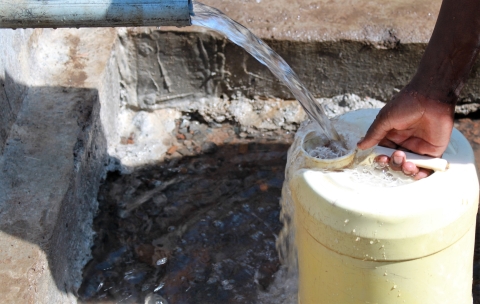
How can reporters make water and sanitation stories more interesting? How can they find the most useful data to explain these issues? A recent impactAFRICA webinar, hosted by the International Center for Journalists (ICFJ) and Code for Africa, in partnership with the World Bank’s Strategic Impact Evaluation Fund (SIEF), offered some answers to these questions.
The discussion featured two World Bank experts: water supply and sanitation specialist Emily Christensen Rand and economist Christian Borja-Vega. Former ICFJ Knight Fellow Christopher Conte moderated the webinar, which offered tips for journalists covering water and sanitation, as well as those who report on economic or health trends in the developing world.
Here are IJNet’s top three takeaways:
Know why water and sanitation are important topics to cover
To explain the importance of water and sanitation issues, the experts suggest connecting them to larger issues of concern to the public, such as health and mortality. Each year, 2.4 million deaths could be prevented if everyone practiced appropriate hygiene and had access to clean water and sanitation systems.
Water and sanitation issues are also key to disease prevention, especially as people migrate from rural to urban areas. Diseases like Ebola spread much more easily in urban slums that lack basic services. Good reporting can help explain to the public why these issues matter.
Know where to get access to water quality data
Journalists looking for data on water quality have numerous places they can check for the most accurate information. On a macro level, journalists can look at the World Health Organization’s water quality benchmarks for country-specific data. On a more micro level, local governmental health offices and NGOs are good sources for water quality data.
Tell stories about maintenance of water and sanitation infrastructure, not just construction
The easiest stories to tell are those about construction of new facilities or where new facilities are needed. However, in many cases, facilities already exist but are not maintained properly or not used by local communities. These are important stories to tell. Journalists can also help explain why local habits may not be changing and why communities may be struggling to adapt to better sanitation practices, even where adequate facilities exist.
This post was also published on IJNet which is produced by ICFJ.
Main image CC-licensed by Flickr via KUAP Pandipieri.